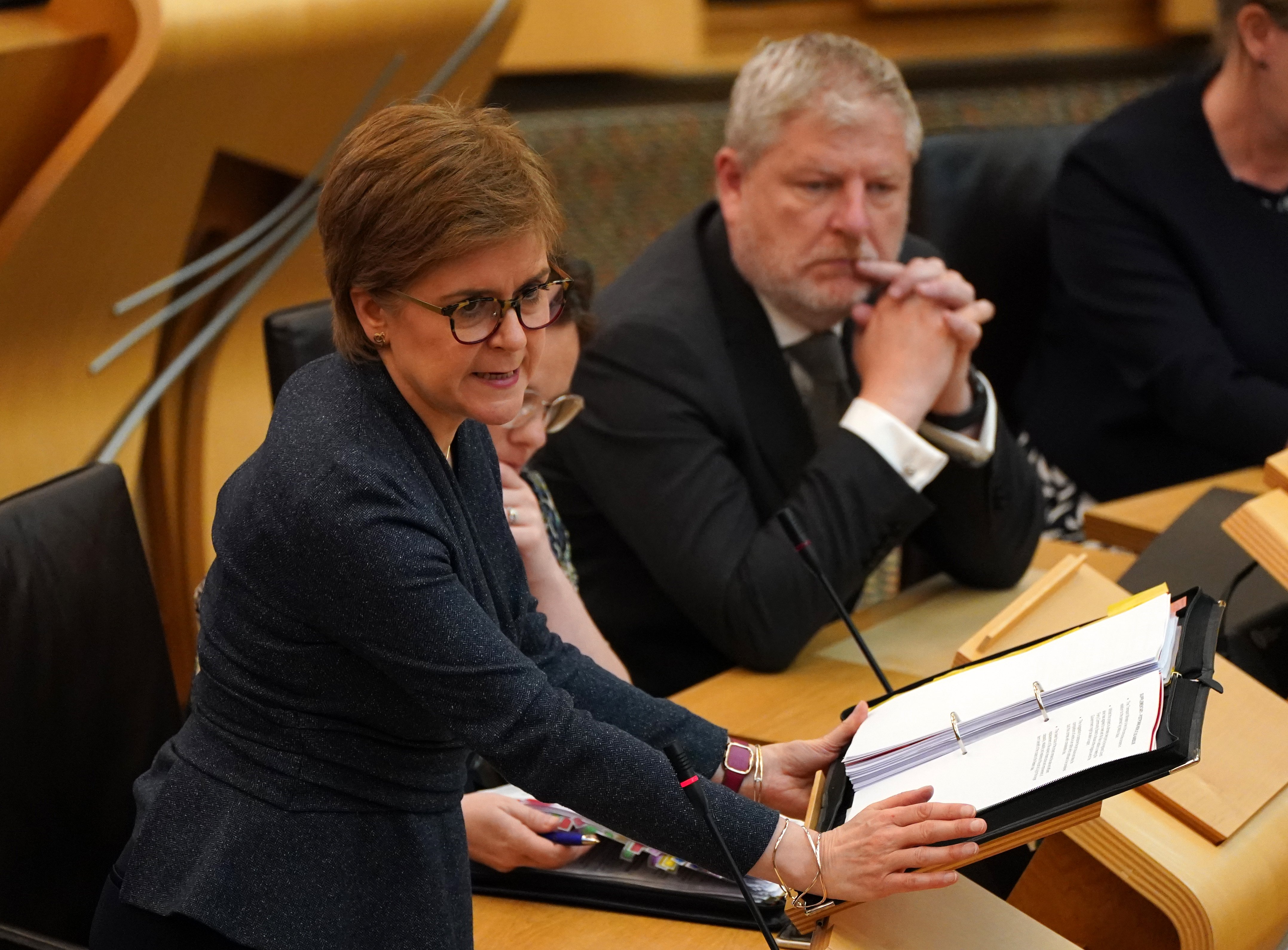Scotland has taken the initiative. Scottish first minister Nicola Sturgeon announced on Tuesday in the Hollyrood parliament that she intends to call a unilateral and non-binding independence consultation on 19th October, 2023. Sturgeon has stated that "the democratic mandate of the Scottish people is very clear" and, in the face of the refusal by Boris Johnson's UK government to allow a new referendum, she asserts that Scotland cannot allow its democracy to be "imprisoned" by the British PM's unwillingness to accept the transfer of powers that would allow Scots to call a binding vote. So the vote will go ahead without permission - if necessary - from Westminster. It is precisely the lack of legislative power to hold such a vote that has made Sturgeon resort to the alternative, which is that of a referendum "of a consultative nature."
This declaration by Nicola Sturgeon was part of a speech scheduled for this Tuesday at the Scottish Parliament, in which she was to update her government's roadmap to allow the Scottish people to make a decision on independence. In recent days, it has been speculated that she would explain what steps would be taken to hold a new referendum in 2023, without London's consent "if necessary", but always, she insisted, in a way that is legal. Earlier this month, Sturgeon spoke of the "indisputable democratic mandate" with regard to a new independence referendum. On Monday, the Scottish first minister had already told the media that "the argument for holding a referendum is as democratic as it is pro-independence". It should be remembered that in the legislative elections of May 2021, the Scottish Nationalist Party (SNP) won 47.7% of the vote and was one MP short of an absolute majority of seats.
Sturgeon also announced that her government's plan to hold the consultation on its own has already been referred to Britain's Supreme Court to assess its legality. The Scottish government wants the vote in 2023 to ask voters the same question as in the first "indyref" eight years ago: “Should Scotland be an independent country?”
2014 referendum
Although this new vote, for now at least, will be "consultative" in nature, in 2014 a binding independence referendum was held in Scotland, the result of an agreement between the Hollyrood executive and the UK government, then led by David Cameron. The vote took place on 18th September 2014 and 84.6% of Scottish voters took part. At that time, those who voted no to independence won with 55.3%; while yes voters accounted for 44.7% of ballot papers.
Since then, support for the SNP and for independence has been growing and several polls have suggested that yes would be the winning option. In this context, Sturgeon ran in the 2021 Scottish parliamentary election promising to move in that direction and reiterating her commitment to hold a new referendum, with or without Downing Street's agreement. So far, Johnson has given little more than a flat refusal, and last weekend the British secretary of state for Scotland warned in a BBC interview that "everything related to constitutional affairs is reserved for the British Parliament" .
Boris Johnson wants to address "issues that really matter"
The UK prime minister, Boris Johnson, reacted to the announcement of the consultation saying that "now is the time to address the issues that really matter to people". "Both our own priority and that of the Scottish Government should be to work together in a relentless approach to the issues that matter to people," he asserted, making it clear that his UK executive is opposed to this vote, and wanting to wait until the British Supreme Court decides on the legality of the consultation raised by Scotland.

